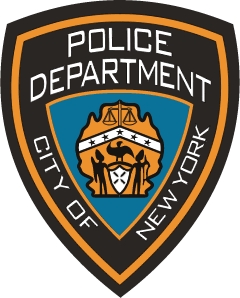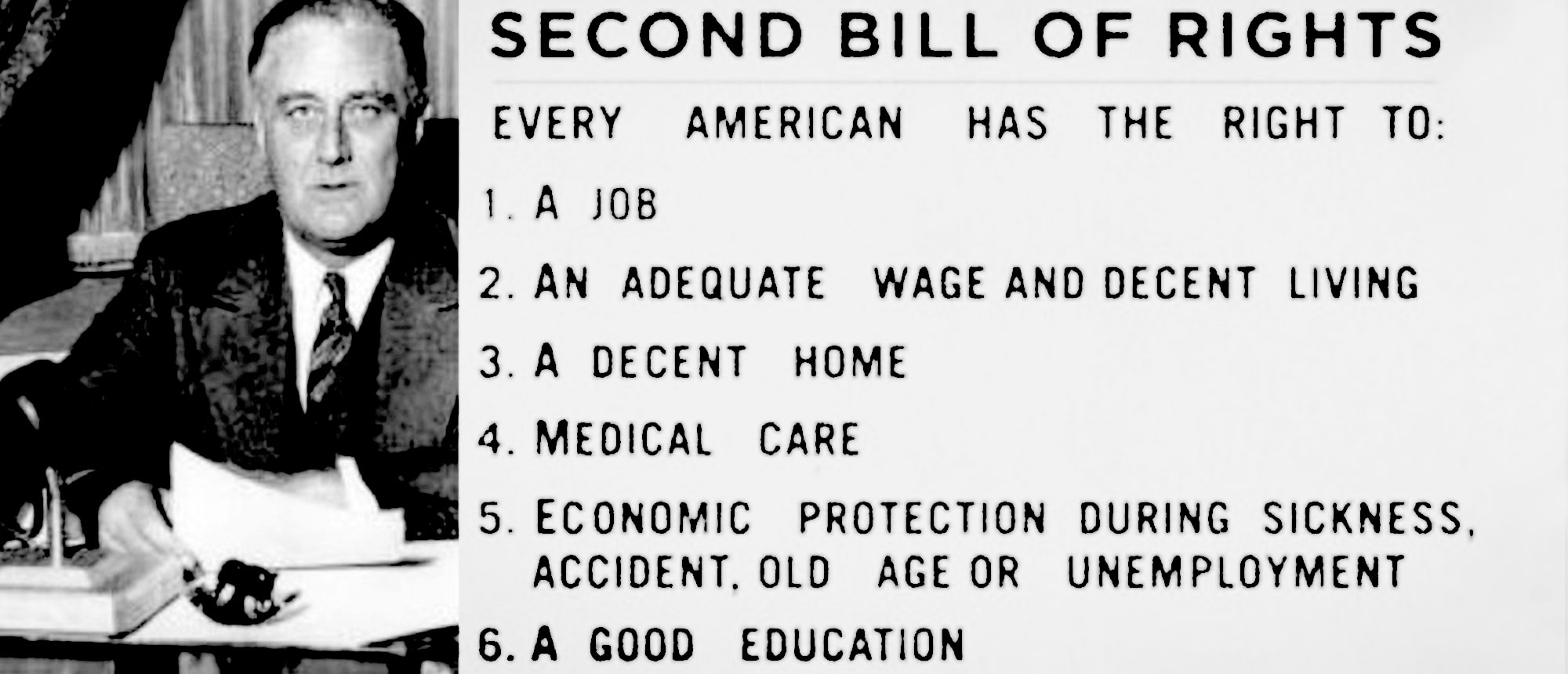(ThyBlackMan.com) Basic Know Your Rights Information…
I. Four Levels of Police Encounters/Intrusions
1. Approach/Common Law Right to Inquire
2. Explanatory Information
3. Stop/Frisk
4. Arrest/Search
a. Arrest with a Warrant
b. Arrest without a Warrant
c. Search
d. Searching Your Home
e. Searching Your Vehicle
II. What To Expect After Arrest
• Precinct to Central Booking
• Miranda Warnings
• Your Stay in Central Booking
• Medication Issues
• The Arraignment (Here Come the Judge)
I. Four Levels of Police Encounters/Intrusions
1. Approach/Common Law Right to Inquire
This is the most minimal level of police intrusion. The police may approach and question people on the street if they have an “objective credible reason.” Because an “objective credible reason” tends to be vague and quite broad, the result ends up being any time they feel like it. Typical questions the police may ask under these circumstances are: Your identity, your address, and your destination.
2. Explanatory Information
If the police have a “founded suspicion” that criminal activity may be occurring, they may ask you more incriminating and accusatory questions. The law requires that the greater the intrusion of the police into your privacy, the more cause the police must demonstrate to justify the intrusion. For example, if the police have a “founded suspicion” that you may possess stolen property, they might ask you, “What do you have in your bag?”
NOTE: Police can ask you questions like anyone else; however, you do not have to respond. You have the right not to stop or to answer questions a police officer may ask you. HOWEVER, non-responsiveness usually leads to an escalation of the confrontation. It is wise to ask the officer if you are free to go. The officer is NOT allowed to detain you or use force to restrain you at this level. If the police officer does make it clear that you are not free to leave, the encounter has reached the next level.
3. Stop/Frisk
When a person is not free to leave, he/she has been stopped. If you reasonably feel that you are no longer free to walk away from the police, odds are that you have been stopped. Other ways you can determine if you have been stopped include:
A police officer displaying a weapon
The presence of multiple police officers
The police physically touching you
Threats made by the officer
Tone of voice/use of language
Technically, in order to stop a person, the police are supposed to have specific facts, which lead to a “reasonable suspicion” that criminal activity is taking place. This reasonable suspicion may be based on the officer’s personal observations, hearsay or an anonymous tip (if it is corroborated). Behavior found to create “reasonable suspicion” might include:
Carrying inappropriate objects at odd times or places, i.e.– walking down the street with a television set at 3:00 A.M.
Concealing an object upon seeing a police officer
Indications that drugs are being used or purchased
Your appearance may also be a factor, if it matches the description of a crime suspect, or if your location is close in time and/or distance to a reported crime. These factors are particular “favorites” of the police, and are used quite frequently.
Technically, the police CANNOT stop you due to subjective impressions or their hunches. However, as most of us know, they do this anyway.
Once you have been stopped, but have not been arrested, the officer is limited in what he/she can do to you. At this time, you have the right not to say anything at all. You also have the right to say everything (which we do  not advise), as long as you do not give false information. You can also ask why you have been stopped.
not advise), as long as you do not give false information. You can also ask why you have been stopped.
An officer may frisk you if he/she has “reasonable suspicion” that you are armed, or that his or her own safety is in danger. The purpose of a frisk is to find weapons, although most police officers believe merely stopping someone justifies a frisk. Some factors that can lead to a frisk include:
A bulge around the waist
Efforts to conceal a bulge
Sudden hand movements toward the bulge
Attempt to flee
The frisk should begin as a pat down outside the clothing. An officer is only allowed to reach into pockets of underneath clothing if a weapon is felt during the pat down. An officer is not justified in more thoroughly searching your person or belongings during the frisk.
4. Arrest
An arrest is being taken into custody to “answer for an offense.” An arrest has taken place when the police indicate verbally or by force that you are not free to go. At this point, you would be taken to the precinct for questioning. Most of the time if you are arrested you will then be charged with something, although this is not always true. In New York City, technically, if you are arrested, you must be released or arraigned (go before a judge) within 24 hours. Sometimes they do hold people longer, although they are not supposed to.
To arrest an individual, police need probable cause, which means that facts and circumstances lead a reasonable person to conclude that a crime has occurred and that individual has been involved
Probable cause may include:
• Police sees individual commit a crime
• Reports from a fellow officer that individual has committed a crime
Police CANNOT justify an individual’s arrest based solely on one of the following:
Presence in a high-crime area
Trying to run away
Previous criminal record
4A. Arrest with a Warrant
A warrant may be issued for your arrest if you are not in police custody, and the police show a judge probable cause for your arrest. In addition, a warrant may be issued for your arrest if you fail to appear in court for a previously scheduled court date.
4B. Arrest without a Warrant
Most arrests by police officers occur on the street, without a warrant; therefore, certain requirements must be met. The Fourth Amendment to the Constitution protects citizens from “unreasonable search and seizure.” Basically, this means that if you are arrested on the street without a warrant, that the officer has to show they had probable cause to arrest you.
4C. Searches
A search is more intrusive than a frisk, and requires a higher standard of justification. Searches require “probable cause” and may be conducted with or without a warrant, according to the circumstances. A warrant is an order signed by a judge that describes the specific place, items, and/or persons to be searched/seized. The police may seize other non-specified items found while “reasonably” executing the search, which is obvious evidence of a crime or contraband.
Search incident during or after an arrest – The police may search you when you are being arrested, or after your arrest, in order to locate evidence that may be destroyed and to make sure you do not have any weapons. Police must have probable cause to arrest you before the search. They cannot rely on the results of the search as justification for the arrest.
4D. Searching your Home
The police need a warrant to search your home, but keep in mind that there are some exceptions:
Consent: This is when a person voluntarily gives the police permission to search their persons or premises. If you do consent, you can specify the limits of your consent. For example, “you can check my pockets, but nothing else.” If the officer says you have no choice, you can say, “Okay, if I have no choice, I will cooperate, but you do not have my consent to search me.” Remember if you voluntarily allow the police into your home (or if they have a warrant) anything that is in Plain Sight and is “illegal” can be used against you by the police and be the basis for an arrest.
Exigent circumstances: This is when there is a risk of physical danger to the officer and/or others, or a risk of the loss/destruction of evidence. If the police reasonably believe evidence will be destroyed if a search is delayed, they may search you if they have probable cause that a crime has been committed and the person being searched has the evidence. The police will also consider whether they or anyone else is in danger beforehand, to determine whether to begin a search without a warrant.
4E. Searching your Vehicle
If cops legally stop you (usually the cops have pretext’s for stops, like you didn’t signal for turn, speeding, etc.) they can frisk the driver and search the passenger compartment—they CANNOT search your trunk. To protect yourself later, you should state that you do not consent to a search. It is not lawful for police to arrest you simply for refusing to consent to a search. Even if they arrest you—they CANNOT search your trunk on the scene. BUT if cops have probable cause that something in your trunk contains illegal contraband OR the car is impounded, cops can search the ENTIRE car (including the trunk) Never consent to a search of your car—even if you have nothing illegal.
Upon request, show the police your driver’s license, registration, and proof of insurance. In certain cases, your car can be searched without a warrant. If you’re given a ticket, you should sign it; otherwise you can be arrested. You can always fight the case in court later.
If you’re suspected of drunk driving (DWI) you will be asked to take a breath-alcohol and coordination test. If you fail the tests, or if you refuse to take them, you will be arrested, your driver’s license may be suspended and your car may be taken away.
If cops legally stop you and see something illegal in “plain view,” they can search your car without a warrant.
II. What to Expect After an Arrest – Precinct to Central Booking
Since arrests occur in so many different situations, it is difficult to predict with any precision the exact circumstances that someone arrested will encounter. This is a general overview about what to expect in most cases if you are arrested.
If arrested you will be handcuffed, and except in unusual circumstances, you will first be taken to the precinct in which the arrest occurred for initial processing. At the precinct, a police officer will interview you and ask for “pedigree” information, including your name, address, date of birth, Social Security number, etc. Once you have been fingerprinted you will be taken to Central Booking in that borough and processed for arraignment, which is an appearance before a judge.
If you know in advance that you might be arrested (for example, you are planning to engage in civil disobedience during a demonstration, or voluntarily appear at a precinct at the request of the police), or are arrested at your home, you can prepare for arrest. Leave most personal property at home, but do take two forms of identification with you. Picture identification cards, such as a current driver’s license or student identification card, are best. You should also bring a supply of quarters for telephone calls.
At the precinct, a police officer will search you and take personal property, such as house keys, backpacks, purses, medication, large sums of money, or valuable jewelry, as well as any unlawful items you happen to have in your possession (contraband). Items other than contraband are held while you are in custody. You will be given a “Voucher” form listing your property, so that you can retrieve it later. However, if an officer is processing a large number of arrests at one time, your Voucher form is not ready before you are taken to a cell or another location. If this happens, ask for the “Voucher number” that will be used for your property also write down the officer’s name and shield number. Having this information will make it easier for you to retrieve your property once you are released.
If you have any item that the police believed to be contraband that item will be listed on a separate voucher as “arrest evidence,” and will not be available for you to pick up later. It is also probable that you will be charged with a crime, relating to possession of the contraband.
If you are charged with a crime (a misdemeanor or felony, as defined by the Penal Law, Vehicle and Traffic Law or New York City Administrative Code), you will be fingerprinted and photographed. If you are charged only with offenses classified as violations (such as disorderly conduct under the Penal Law) you will probably not be fingerprinted. However, if the police are unable to establish your identity, or suspect that you are giving false information about your identity, or claim that you are a wanted person, they may take your fingerprints even if you are only charged with a violation.
The police will check to see if you are wanted for an arrest or court warrant, summons or unpaid traffic ticket. If there is a warrant, you may have to spend additional time in jail before arraignment while the court locates the paperwork. If the warrant is from a county other than the one in which you are arrested, you may have to remain in jail after the arraignment and be transferred to that county.
It is possible, but highly unlikely, that you will be released on a Desk Appearance Ticket (DAT), which will require you to appear at the courthouse on a later date for arraignment on the charges. The issuance of a DAT is entirely up to the discretion of the police. If you are lucky enough to receive a DAT, the release will occur while you are at the precinct.
The precinct processing typically takes four to six hours. During this time, you will be held in a cell. You will be permitted to make up to three free calls within New York City, or three collect calls to out-of-town numbers. There may be pay telephones in the cell for your use. If you are not being released on a DAT, you will next be taken to Central Booking, which is located at the courthouse where you will be arraigned.
Your Miranda Rights
You have probably heard on television the speech that is read after an arrest: “You have the right to remain silent. Anything that you say can and will be used against you in a court of law. You have the right to an attorney. If you cannot afford an attorney, one will be appointed for you free of charge.” These are the “Miranda warnings,” which explain your constitutional right not to answer questions posed by the police and to have a lawyer appointed to represent you if you cannot afford to hire one.
In many arrests, the police do not attempt to take a statement from the person who is arrested. In such situations, the police may not read the Miranda warnings, since they are only required to do this when they intend to question a suspect. You should be aware that anything that you say in the presence of a police officer might be used against you, even if the Miranda warnings have not been given. Police are even allowed to use statements that they overhear you make during a telephone call, or while you are talking to other prisoners. You should therefore be extremely careful what you say while you are in custody.
If the police decide to question you, their goal will be to gain an admission that can be used in the case against you. You should not answer questions or make a statement to the police unless there is a lawyer present to protect your rights. Sometimes people under arrest decide to make statements without a lawyer because they believe that they can persuade the police to let them go, process them faster, or gain some other benefit. This almost never happens, and the statements that such people make seriously hurt their cases. If you have information that will help your case, wait to tell it to your lawyer, who will help you decide the best way to use this information. If you are already represented by a lawyer, you should tell the police and ask them to notify your lawyer about your arrest.
Your Stay at Central Booking
While you are waiting, the paperwork required for your arraignment will be completed and assembled, and you case will be “docketed” for court. You will probably be moved several times while you await arraignment, and can expect to spend 8 to 12 hours in the courthouse before you see your lawyer, and then the judge. You will be offered food during this waiting period: cereal and milk for breakfast, and sandwiches and a fruit punch for lunch and dinner. Sandwiches are made with cheese or processed halal lunch meat. You have a right to request a cheese sandwich if you do not eat meat. You also have a right to request drinking water, soap, toilet paper and sanitary pads if these items necessities are not provided. Most cells have pay telephones.
During the waiting period, you may also be interviewed by someone from the Criminal Justice Agency, an independent agency that evaluates arrested persons’ work histories and family and ties, in order to recommend to the court whether they can be trusted to return to court without bail, or whether bail should be set. In order to improve your chances for release, you should give the interviewer your current work and residence information, and the name and telephone number of a person who can verify your information. People must be arraigned within 24 hours unless the police can provide a reasonable explanation for the delay.
Medication Issues
If you have a medical condition and taking medication, you will not be allowed to keep your medication after an arrest, no matter how severe the condition. However, if you anticipate that you will be arrested and want to take your medication while you are in custody, it is still a good idea to bring a one or two-day supply of your medication in its pharmacy-issued prescription bottle. The police officer who processes your arrest is supposed to fill out a Medical Treatment of Prisoner form recording the information on your prescription bottle, including the name of the medication and dosing information, and the name and telephone number for the pharmacy and your doctor. This form will accompany you through the arrest processing and will be provided to the EMS paramedic and any other health care workers you encounter while in custody, although the medication itself will be held at the precinct where you are processed, along with any other property that has been vouchered.
While you are in Central Booking, you should as to be taken to the EMS station if you feel sick. The paramedic will evaluate your condition, and if it appears that you need medication or treatment, police regulations require that you be taken to a hospital emergency room, where a doctor will provide treatment and administer required medication.
The Arraignment (Here Come the Judge)
Once you go through central booking, you will be “arraigned” by a judge. This means the charges you are facing and a brief description of what the alleged facts are in court will be formally read in court by the prosecutor. Depending on the seriousness of your case and whether or not you have a criminal record, the judge will decide whether or not to set bail. In some cases, is very difficult to determine what factor may cause a judge to impose bail. Often times, bail imposition will depend on the temperament of the individual judge.
If you have arranged to be represented by a private lawyer, that attorney will notify the clerks and/or court officers in the part by submitting a “Notice of Appearance.” If you do not have your own lawyer, the court will assign an attorney to represent you. In either case, the attorney will be given a copy of your papers and will speak with you before you see the judge.
At that point, the attorney will tell you what crimes or violations you are being charged with and will discuss with you what happened and what you wish to do. To prepare the application for your release without bail, the lawyer may ask you to provide more information concerning your “community ties.” The attorney may need to contact a friend or family member in order to verify the information, and may also want to have them appear for you at the arraignment, if possible. Once the interview is finished the attorney will notify the part that you are ready and you will be brought into the courtroom for your arraignment.
The arraignment is, in theory, the formal process by which you are informed of the charges against you and the rights you have as a defendant. In practice, this formal reading of the charges and rights is waived by defense counsel. The District Attorney will then give notice of any statements the People intend to use against you, as well any identification of you by prosecution witnesses, and then give a short recitation of the NYPD’s version of the events that resulted in your arrest. This will generally be followed by a plea offer, which court personnel usually refer to as a “disposition offer.” If you are pleading “not guilty,” the court will then ask the District Attorney for a recommendation on whether you should be released on your own recognizance (“ROR’d”) or have bail set. Your attorney will then argue for “ROR” or lower bail, and inform the court if a friend or family member is in the audience to vouch for you. Unless you are taking a plea at the arraignment it is very unlikely that you will be asked to speak. Should you wish to say something or respond to something you have heard, it is advisable that you quietly tell the information to your attorney.
Be aware that arraignments are usually conducted at break-neck speed and the entire process will probably go by in a flash. But if something has transpired that you don’t understand or you think may result in an undesirable outcome, don’t hesitate to ask your attorney to stop and explain.
When Observing a Person Being Arrested
Try to get the name and address of the person getting arrested.
Try to take photographs
Try to get a physical description (including approximate age), and condition of the person.
Note and write down details of the Police Officer’s behaviors, physical description, names, badge numbers, rank and other identifying information.
The more inconspicuous you can be while you are collecting information, the more effective you will be.
Note the behavior of the arrested person.
Note how many Police Officers were around, how close they were, if they were in plain clothes or in uniform.
Try to make a note of the exact time, from the beginning of the incident, to the time that the arrested person is taken away.
Make note of the lighting conditions.
Make note of what the arrested person had in their possession (i.e. bags, bicycles, backpack, etc.)
Try to give your own information to the arrested person (without interfering with the arrest).
The Role of the Community
Since the question of police abuse is a community issue, it is in the interest of the community to prepare for the ever-increasing incidents of police brutality and wrongful death.
1. Institute a Rapid Response Team (this includes):
Doctors and lawyers who will respond quickly in these emergencies
Journalists who will come out to the scene and report these incidents as soon as they occur.
Develop and identify experts such as independent pathologists and investigators.
2. Raise Funds to pay for services needed to assist families and individuals who may need assistance. This kind of community support was used extensively in the South during the Civil Rights Era.
3. Community Patrols; Organize community members to do weekly patrols of the police while they are in the community. Take down badge numbers, names and take pictures so that you can keep a record of the known police in the community. Further get a camcorder and a scanner so that you can respond to police calls and monitor their behavior in the community.
Staff Writer; Kamau Franklin
For more articles by this brother visit the following blog; http://kamaufranklin.wordpress.com/
Also connect with him through Facebook; Kamau K. Franklin.




















Leave a Reply